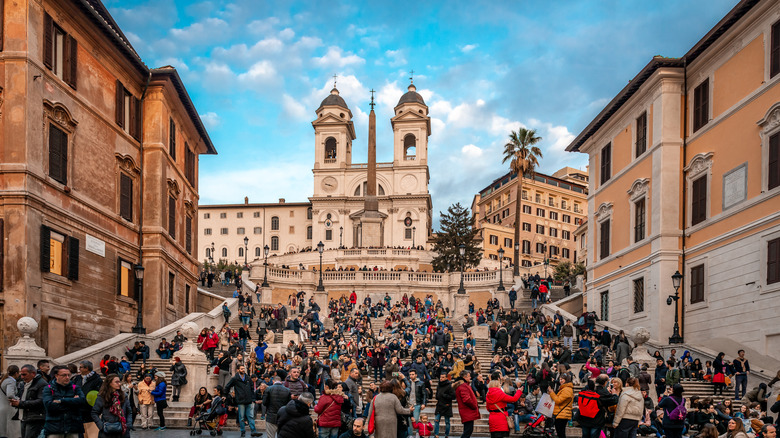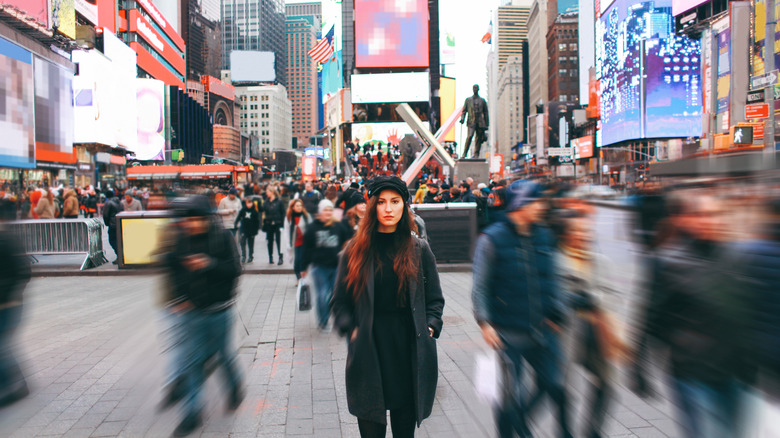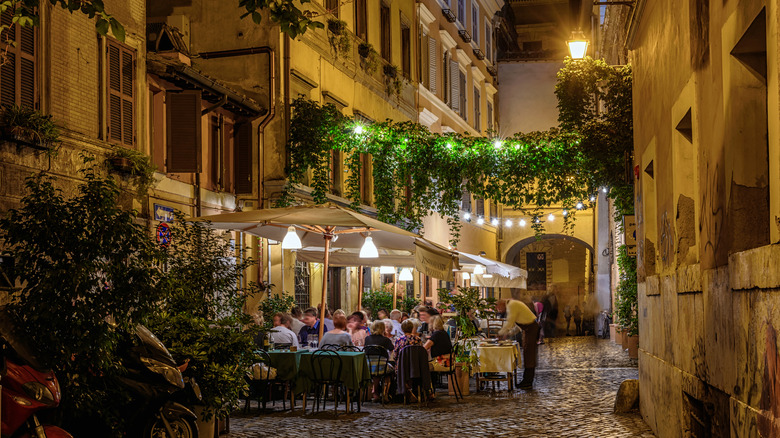Stay Safe While Traveling By Avoiding These Tourist Hot Spots
Traveling provides an opportunity to experience new cultures, sample unique cuisines, and create lifelong memories. However, as amazing as these experiences can be, safety comes first when you're far from home. In some destinations, tourist hot spots can inadvertently attract unwelcome attention. This is especially true for prominently "Western" locations or venues where tourists, particularly Americans, are known to congregate. Avoiding these areas can not only enhance your safety but also enrich your travel experience by encouraging you to immerse yourself more genuinely in local life.
It's only natural for travelers, especially first-timers, to gravitate toward familiar places. These might include Western-themed clubs, bars, or even certain popular landmarks. Such locations can provide a sense of comfort and a home away from home. However, they can sometimes pose risks. Tourist-dense areas can be magnets for petty criminals like pickpockets, scammers, and other types of offenses. It becomes known in criminal circles that a place is a tourist hot spot, and thus it becomes targeted — like walking into a mouse trap, or more aptly, a tourist trap. These groups or individuals have honed nefarious schemes that work time and time again on unsuspecting travelers, leaving them without their wallets, valuables, or worse. Do your part and research some of these common crimes against tourists to know how you can avoid them.
Blend in as a tourist
One of the easiest ways to stand out in a foreign country is by dressing differently from the locals — the key is blending in. Before you travel, research the typical attire in your destination. Avoid wearing clothing that screams "tourist" such as loud shirts, overly casual wear, or expensive-looking accessories. Keep public displays of wealth to a minimum, such as openly flashing amounts of cash or branded clothes. Being excessively loud or flamboyant can draw unwanted attention, so try to keep everything low-key.
Even if you're not fluent in the local language, learning a few essential phrases can go a long way in speaking, listening, and overall comprehension. Simple greetings, thank yous, and polite questions can help bridge the gap, showing respect for the culture and making you less identifiable as a tourist.
Instead of opting for restaurant chains or eateries in heavily touristy areas, seek out local diners or street vendors. Not only is the food likely to be more authentic (and delicious), but it will also make for a more immersive dining experience. As far as transportation goes, be diligent. While tour buses or taxis are convenient, they might not be the best choice — taxi scams and inflated tour bus prices are unfortunately common. Whenever safe and feasible, go for local transport, be it a subway, a local bus, or even a bicycle. Ride-share apps are also a good option because they indicate the price upfront and record your trip should something happen.
Embrace local experiences
Blending in isn't just about safety; it's about truly immersing yourself in a foreign culture. You'll engage with your destination on a much deeper level. Meeting locals, participating in regional traditions, or even just walking down a non-touristy street can lead to unexpected and memorable experiences. If you're in Rome, instead of having a pasta carbonara (with an English menu) in front of the Colosseum, consider a bohemian trattoria in the youthful Trastevere neighborhood and practice your Italian. Simply put, "When in Rome, do as the Romans do".
Often, the best spots in a city aren't the most advertised. By venturing off the beaten path, you might discover a quaint café, a beautiful park, or a fascinating museum that most tourists miss. Bonus point: fewer crowds! Local joints are usually more affordable than places catering to tourists. Whether it's food, souvenirs, or accommodations, you'll often get better value for your money by opting for local favorites.
While there's nothing wrong with visiting popular tourist spots, there's a whole world outside these areas waiting to be discovered. Prioritizing safety by avoiding places where tourists predominantly congregate is a smart strategy to avoid getting scammed, pickpocketed, or having an overall mediocre experience. But beyond that, embracing local customs, habits, and recommendations can lead to a richer, more authentic travel journey. On your next trip, step out of your comfort zone, blend in, and dive deep into the heart of the culture. After all, "when in Rome" ...


